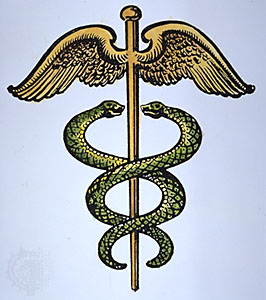
Mark Bower
While this guest post is based on a hypothetical, the ethical issues raised are the type any lawyer may encounter in a medical malpractice case that implicates a hospital resident.
The author, Mark Bower, is not only a long-time medical malpractice practitioner whom I’ve known for decades, who has guest blogged in this space before (and again here), but he has also been a member of the Ethics Committee of the NY County Lawyers Association for 20 years. In other words, this piece is right in his wheelhouse…
——————————————By Mark Bower
Ordinarily, doctors sued for medical malpractice view their insurance company as their friend and protector, but sometimes, that is not at all the case.
Let us assume a hypothetical case for purposes of illustration: A hospital, its senior private attending physician, and an employed resident physician in training, are sued for medical malpractice (birth trauma). The hospital’s resident is a young obstetrician. There is a question as to who delivered the baby. The person who (mis)handled the delivery is the “target” of the malpractice claim.
Continue the hypothetical: To protect its senior attending, the hospital and attending physician both claim that the resident delivered the baby. To defend herself, the resident claims that the attending physician did it. This factual dispute cannot be resolved by the delivery record, and the mother’s recollection of the difficult birth is not accepted as reliable.
Because the hospital wants to protect the senior attending physician, hospital’s attorneys cannot simultaneously defend the resident physician. The insurer for the hospital must retain “independent” counsel to represent the hospital’s resident.
Let’s develop our hypothetical further. Let’s assume that eventually, the case is settled by the hospital’s attorneys. Because the hospital has vicarious liability for its resident, the resident does not have to contribute to the settlement from her own funds. The defense insurance company vests its settlement authority in the hospital’s attorneys, and does not want to pay for a second attorney to attend or participate in the settlement negotiations, particularly since the hospital’s insurance coverage will pay the resident’s share in any disposition anyway. As a result, the resident’s “independent” counsel does not appear or participate in the settlement negotiations.
Only after the settlement is finalized does the resident learn that the settlement payment was attributed to her. Because she has no out-of-pocket responsibility to pay any part of the settlement amount, she was not consulted. Nonetheless, because the bad outcome is attributed to her, she has to be reported to the NYS Health Department and the National Practitioner Data Base (NPDB). Those reports may impact badly on her future career, through increased malpractice insurance premiums, decreased employability, etc.
This scenario raises the questions about the “independent” counsel’s duty to protect the resident despite the complete absence of personal contribution to a settlement, and whether there was possible ethical lapse and/or legal malpractice in this situation. We believe that in these circumstances, the “independent” counsel must appear at the settlement negotiations to defend and protect the resident, even though she has no personal financial “exposure” in the negotiations. If the resident’s attorney did not do so, and the result is that the resident gets a “black mark” with the Health Department or NPDB, the resident may have a legal malpractice claim against her own attorney.
Even where the settlement is paid by the hospital’s insurance coverage, and the resident does not contribute to the settlement payment out of her own pocket, the resident is at risk from the settlement, because she may still suffer career harm and indirect economic harm (damage to her reputation and professional standing, damage to future employability and insurability) that may follow and limit her professional advancement. Particularly because a resident doctor in training is at the beginning of her career, those harms may add up to large amounts of money over the course of a professional lifetime. As a result, the resident’s attorney has a duty to protect the client from these harms, regardless of whether she contributes to the settlement with her own funds or not.
The problem of conflicted loyalty that this case presented, is unavoidable. The insurance company typically does not want the “independent” attorney to impede or block the settlement, or try to shift the responsibility back to its other insureds, in particular in this hypothetical situation, to the more senior attending doctor. The “independent” attorney may depend on the insurer’s satisfaction with his work (and possibly the hospital’s, satisfaction as well), to get future work when the opportunity arises.1 The “independent” counsel may earn gratitude not shared by the resident doctor.2 The “independent” counsel has a personal interest in pleasing the insurer at the expense of his client. Such conflicts of interest are an inherent part of lots of defense work.
This divided loyalty is an unavoidable problem, but the resolution of it is easy, according to basic legal ethics: The attorney must act with undivided loyalty to his client (in this case, the resident in training), even if that conflicts with the wishes of the insurer that retained him, or the hospital whose good will he depends on.3 The attorney must act selflessly, including sacrificing his self-interest if necessary, to protect his client.
As a result, the courts generally condemn such acts of disloyalty to the client, and allow appropriate remedies against the attorney that allowed the others’ interests to advance, to the detriment of his own client.4
In our hypothetical situation, the fact that the settlement payment does not come from the resident’s pocket, seemed compelling to the “independent” attorney. That, and the carrier’s reluctance to pay multiple attorneys to attend settlement negotiations, is probably why the “independent” attorney would not attend the settlement negotiations and fight to prevent the settlement from being attributed to his client. Fighting back, to attribute the settlement to the senior attending physician, could make serious waves, and could even cause the settlement negotiations to fail. Invariably, “hospital politics” plays a back seat role in these circumstances. The fact that the resident can get harmed in other ways, despite not paying the settlement with her own funds, may get “lost in the sauce.”
The moral of this story is that if a client is assigned “independent” counsel by their employer or the employer’s insurance company, that attorney is charged with the legal and ethical duty to protect his client, not just from paying a settlement out of pocket, but from the other harms that come from having a settlement recording against the client; and the client may have a right to recover for those harms against her “independent” attorney, for failing to protect her against those harms.
1. The “independent” attorney looks to the insurer, not the client, for future work. “[T]he attorney’s relationship with the insurer is usually ongoing, supported by a financial interest in future assignments, and, like other long-term relationships, sometimes strengthened by real friendship.” See 4 Ronald Mallen & Jeffrey M. Smith, Legal Malpractice, §§ 30:3, at 150 (2010 ed.).
2. Barker, Miller et al, “Insurer Litigation Guidelines: Ethical Issues for Insurer-Selected and Independent Defense Counsel,” ABA Section of Litigation 2012 Insurance Coverage Litigation Committee CLE Seminar, March 1-3, 2012.
3. E.g., Restatement (Third) of the Law Governing Lawyers § 16 & cmt. e (perm. vol. 2000) (describing duty); Cinema 5, Ltd. v. Cinerama, Ltd., 528 F.2d 1384, 1386 (2d Cir. 1976) (attorney owes undivided loyalty to every client).; Charles Silver & Kent Syverud, The Professional Responsibilities of Insurance Defense Lawyers, 45 Duke L.J. 255, 311-12 (1995).
4. See, e.g., American Bar Association’s Model Rules of Professional Conduct, Rules 1.8(f), 5.5(c) (ABA 2011).
 Well, you don’t see this every day — a lawyer trying a medical malpractice case passes out in court. Then the doctor that he sued rushes in to assist him. All in front of the jury.
Well, you don’t see this every day — a lawyer trying a medical malpractice case passes out in court. Then the doctor that he sued rushes in to assist him. All in front of the jury.

